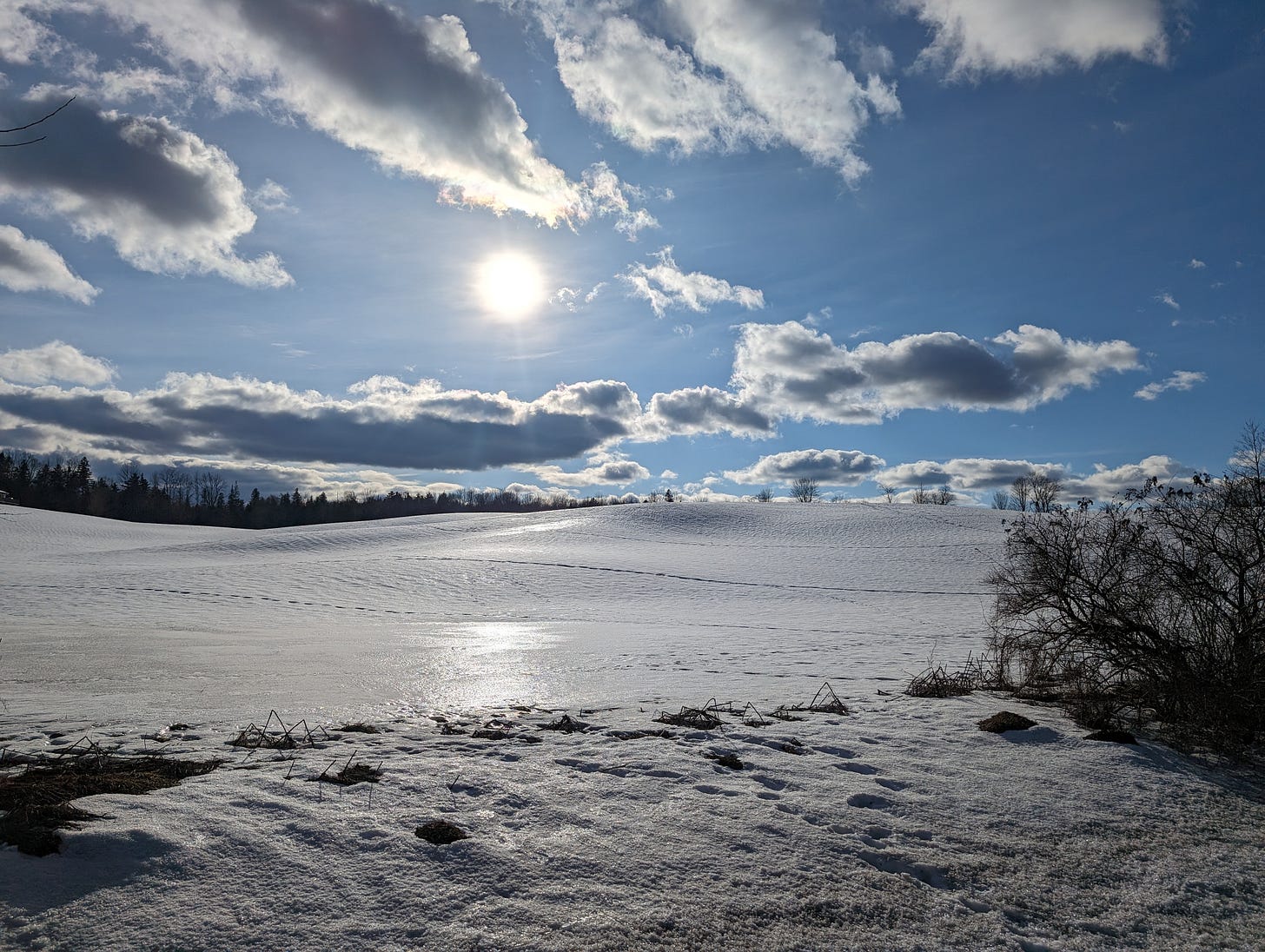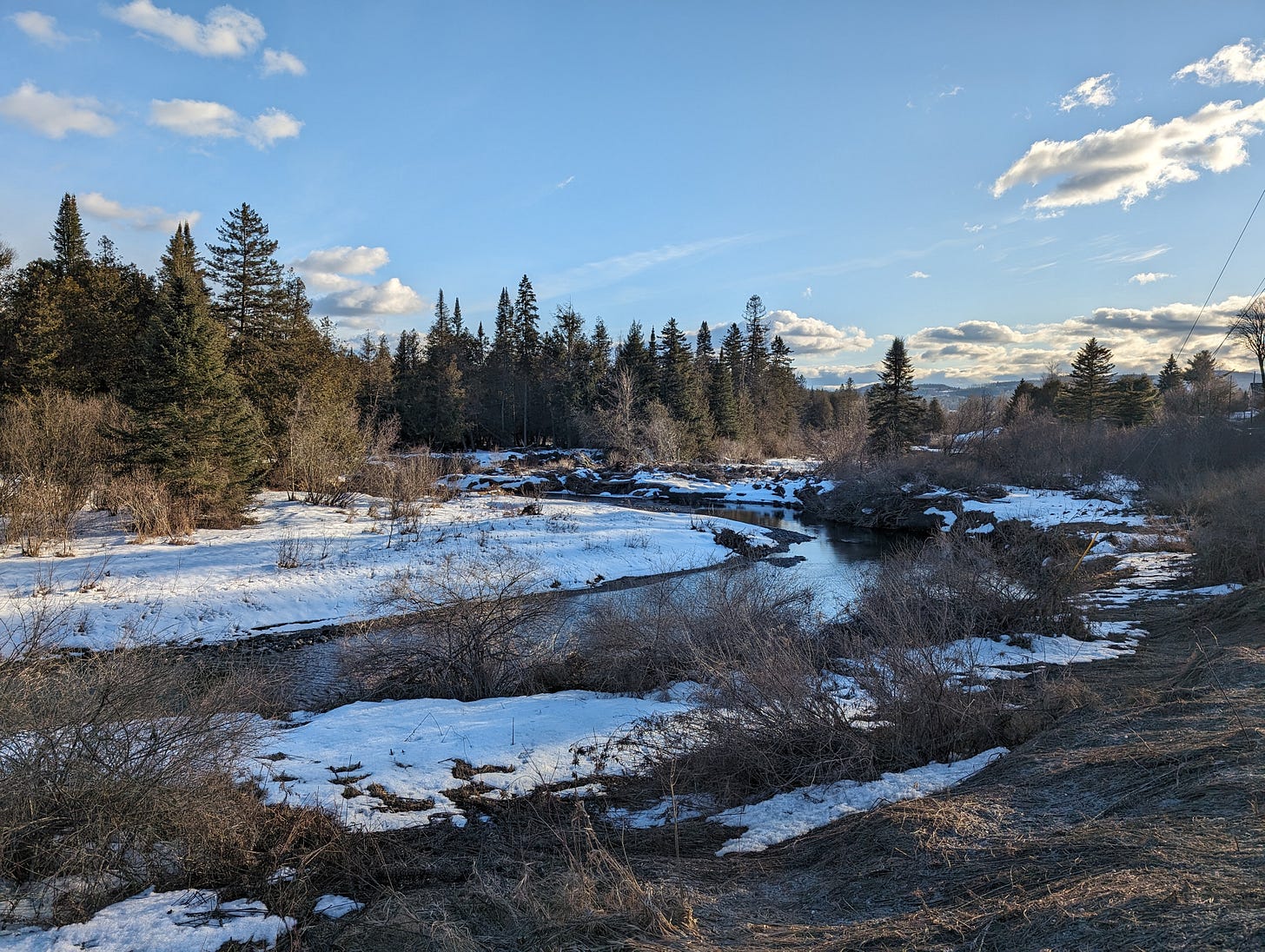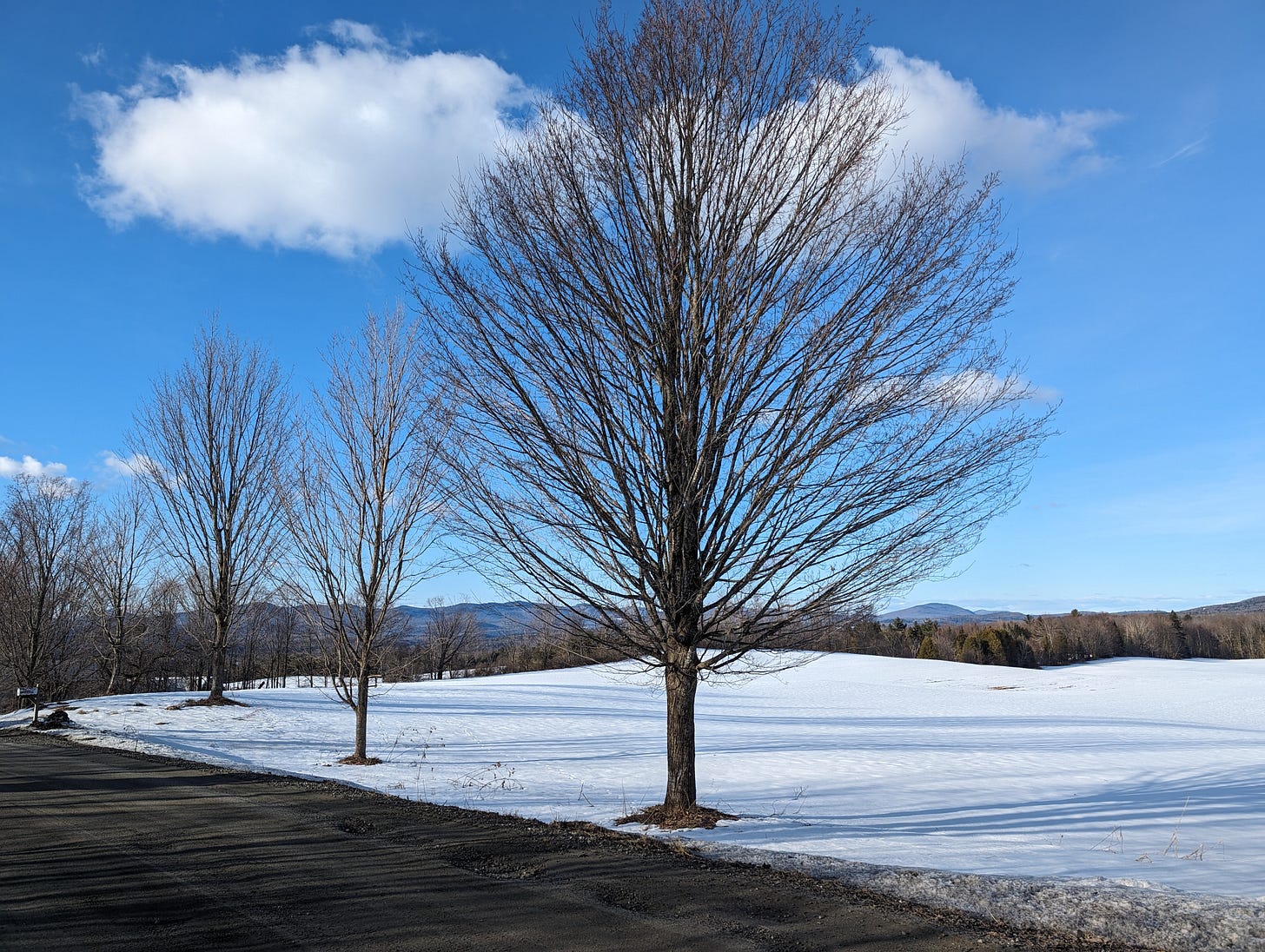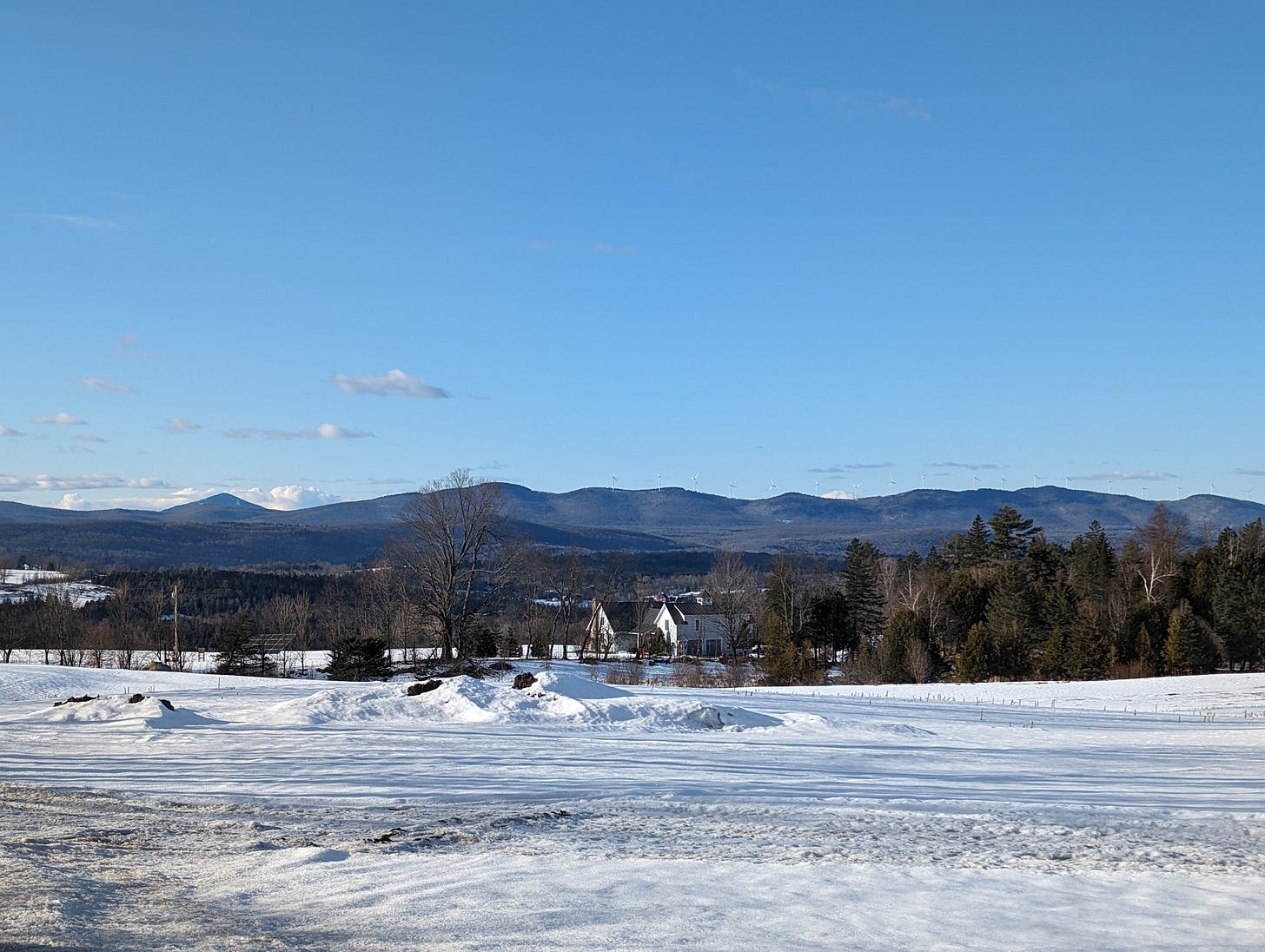Repent and Replace
Walking the Winter Desert of Lent
First Sunday in Lent
And just as he was coming up out of the water, he saw the heavens torn apart and the Spirit descending like a dove on him. And a voice came from heaven, “You are my Son, the Beloved; with you I am well pleased.”
And the Spirit immediately drove him out into the wilderness.
He was in the wilderness forty days, tempted by Satan; and he was with the wild beasts; and the angels waited on him.
Now after John was arrested, Jesus came to Galilee, proclaiming the good news of God, and saying, “The time is fulfilled, and the kingdom of God has come near; repent, and believe in the good news.”
Mark 1:10-15
Don’t Cry Over Spilt Ashes
I don’t know how your Lent is going, but we had a joint service for Ash Wednesday with the church across town. I had never made the ashes before, but we needed some and I was entrusted with the task. Mark uses the word “immediately” a lot in his gospel, and in making ashes, there immediately were issues.
Traditionally, making ashes involves grabbing palms from last year’s Palm Sunday, but all I had was some copies of the local Seven Days newspaper. Not wanting to toxify my house, I went on the porch and burned them in a frying pan, with no place to set them except on top of a folding table, not thinking that the pan would melt the table plastic until halfway through. It made a big mess and ruined some stuff that will be coming out of my budget, but I got some ashes! Things went smoother after that. I added the right amount of oil to get the right color and holy consistency, and with Pastor Kim Larose at the Church on the Common, I marked the cross on people’s foreheads during the service, “Remember you are God’s beloved dust, and to dust you shall return.”
After the service, I put the extra ashes back in the jar, thinking, “I don’t want to go through that ordeal again, I need to hold onto these for next year.” But as I was walking back in the house, the ash jar fell and burst open, scattering the ashes everywhere back into the dirt. I emitted grown-man noises as I got so upset, “No! My precious dust! I was holding onto that!”
What I’m saying is, I learn nothing.
I tell this story to say Lent isn’t about perfectionism. It’s about walking closer with Jesus towards Easter, and any new diets, disciplines, or things we try, none of these are for proving ourselves, but for making us more available for Christ. To remove manifestations of our sin-separation from God so that he can fill it with light.
Our Gospel reading has what is called in Greek the kerygma, the proclamation of the Gospel itself. The very act of proclaiming is part of God’s entrance and action in moving closer to us. In this proclamation, Jesus calls us to both turn back from our old ways and believe the good news: “Repent and believe.” Let’s explore each.
Repenting: Driven by the Holy Spirit
To talk about repenting, I want to talk about the Holy Spirit who figures into our Mark reading today.
After descending in Jesus’ baptism, the Spirit then “drove him out into the wilderness,” where Jesus fights Satan and wild beasts. Now pay attention to that—the Holy Spirit wasn’t just the presence of a joyful outpouring of God in baptism…it is something that drove Jesus right into the desert, into fighting the untamed forces of flesh and blood that live in the wilderness, into confronting Satan himself.
As preacher and professor Matt Skinner pointed out, the Holy Spirit is not just positive feelings and good vibes, and neither is the spiritual life. Sometimes, even Jesus was driven by the Spirit straight into spiritual conflict, straight into spiritual battle, straight into the wilderness, something some of the earliest Christians known as the Desert Fathers even did in a literal way. As Skinner says, we often want to be conflict-averse in the spiritual life, but sometimes the Spirit is moving us towards something hard. We can’t ignore the call of the Spirit just because it’s unsettling. As said on The Lectionary Lab, an old Methodist bishop named Joe Thomas once said, “Sometimes, the Spirit will lead you to places you don’t wanna go, because if you wanted to go, the Spirit would not be necessary.” When the Spirit calls us to “repent,” sometimes this is very hard, usually to a place we don’t wanna go. If we easily went there, we wouldn’t have to repent of it!
To many, the very word “repent” can sound offensive. But as a church, we are not only called to relay Jesus’ message to others, we must always hear the call to repentance ourselves. As the preacher Delmer Chilton says, the M.O. of many popular churches is to look at what people want, and then say that God’s going to give it to them. But that is not what Jesus does. While we need to be kind and humble, and I’m not suggesting we start knocking on doors with a dose of “Christian love” and asking our neighbors if they’ve repented—something that’s hard to see going well in Vermont anyway—we can’t forget that Jesus does call us to repent, and that the Spirit calls us to do hard things we don’t wanna do, and sometimes drives us into confronting evil out in the world and in ourselves.
But that’s just one side of the Gospel coin. What about that “good news” we’re supposed to believe, too?
Believing: Not Just Removing, But Replacing
Sometimes, repentance is like breaking free of an addiction. When I was learning how to quit drinking over six years ago, I learned that some addiction science tells us that we can’t just remove a bad habit, but we have to replace that habit with something new. Jesus’ kerygma proclamation isn’t to just repent of sin and that’s it. We “repent and believe,” or repent and replace, filling in what we’re removing with a deeper belief in him.
So what is something you might do if you let your belief in Christ sink in a little deeper? If we believe that the kingdom of heaven is near, how might we act that’s different from how we’ve been acting? What do you feel called to do with your precious time as God’s dust?
This doesn’t have to be grand. It can be very practical. One thing I’m doing is repenting of playing online chess, and replacing it with reaching out to people when I feel the temptation. Some may laugh at chess being a vice—“Man, pastor, you’re really in the gutter.” But I get addicted to chess to numb my feelings when I’m stressed, and it gets me into a little isolation from my problems. And if I really believe in the Gospel, and I really want to walk closer with Jesus, I know he’s not calling me to be numb and disconnected. If I want to walk with Jesus, I know it’s important to put more effort into reconnecting with loved ones and those around me, for they are part of his body.
When we give up something during Lent, we are taking one small thing we are “repenting” of. Whatever you may try to give up this Lent—and you can still start something new now, or change what you were doing—I encourage you to also find something to replace it with. While dieting is a good thing to do any time of year, I encourage you think deeper about what you might need to repent of that is separating you from a deeper relationship with Jesus, especially as that relationship with Jesus emerges through other people.
Our Help in the Winter Desert
I spent many years in California. Like countless others, I formed a spiritual connection to the desert of Joshua Tree. What I didn’t expect in moving to the freezing Northeast was discovering winter in Vermont is a desert-like climate too. It’s lush and overflowing throughout the year, but in the winter, life becomes sparse and harsh, silent and fleeting. Crops that grew all year have been long harvested into razed fields, with endless stretches of blank canvas. Insects and most birds disappear, field mice scamper into barns and beg quarter in human homes, the occasional squirrel and chipmunk pursue their quixotic quest for the unlikely hidden nut, and you would hardly know there were deer were it not for their tracks. While technology makes us humans forget, cold climate winters and hot deserts bring us close to the edge of what can sustain life.
As Lent marks Jesus’ desert voyage for forty days, this winter desert is a perfect place for Lent. And so each week I’ll be bringing in things from the early Christians known as the Desert Fathers, which I wrote about here for Ash Wednesday. As Anglican priest Thomas McKenzie says in his Lenten book about them:
“The Desert Fathers were people who wanted to know God more fully, and they were willing to do anything for that to happen. There are many fascinating stories of their lives and adventures. Some of these tales are intense, some are disturbing, and some can be hard to believe. Whether all the stories are true we don’t know. We do know, however, that many Fathers were filled with deep, godly wisdom.”1
But while these monks sometimes did extreme things with their bodies and lifestyles to live radically different from how other Christians were living, we in the Reformed tradition emphasize what these Desert Fathers also knew: we don’t do practices to make ourselves perfect and redeemable in God’s eyes. Instead, Lent is not about “extra points with God [or] even bout becoming a better person,” as McKenzie also says. “Lent is about laying down some of our defenses and giving ourselves an opportunity to be formed by God. As in a desert we are unusually vulnerable to nature, so in Lent we are unusually vulnerable to the Lord.”2
As we walk through the winter desert of Lent, we can remember that while the Spirit drives us to do hard things, repentance doesn’t actually have to be heroically hard. As one Desert Father saying goes:
Abba Macarius said, “There is no need for many words in prayer. Just stretch out your hands from time to time and say, ‘Lord as you will and as you know, have mercy upon me.’ If conflict arises in your heart, just say, ‘Help.’ The Lord knows your needs, and he will have mercy upon you.”
That’s all prayer has to be.
And that’s all “repent and believe” has to be.
“Lord, as you will and as you know, have mercy upon me.”
Or just, “Help.”
Maybe what we need to do this Lent—maybe what I need to do—is to repent of our belief that we can save our own souls.
Maybe we can repent of looking for Jesus to tell us what we want to hear, and to be challenged by Jesus’ call as he challenged those who knew him.
Maybe instead we can believe in God’s ways, catching ourselves looking to save ourselves and instead say, “Lord, in this moment, I need your help. I’m turning back from thinking I can do it. I believe.”
As Psalm 25 says,
“To you, O LORD, I lift up my soul…
Make me to know your ways, O LORD; teach me your paths.
Lead me in your truth, and teach me, for you are the God of my salvation; for you I wait all day long.”
Beloved, let us repent and believe in the good news: you don’t have to be perfect. Let us be driven by the Holy Spirit, wherever the Spirit’s call may take us. For wherever you go, and however hard it is, the Lord is near.
McKenzie, Thomas. Lent with the Desert Fathers (p. 8). Colony Catherine. Kindle Edition.
Ibid, p.7.






